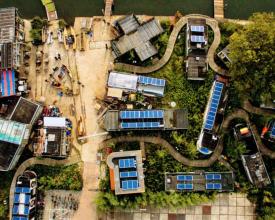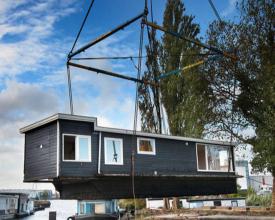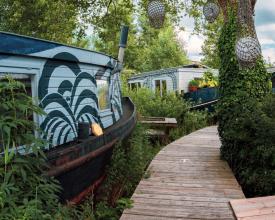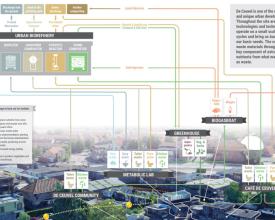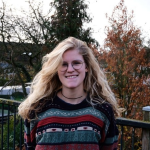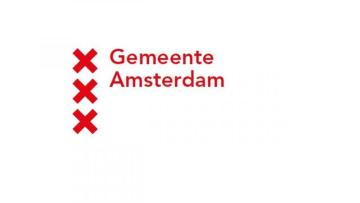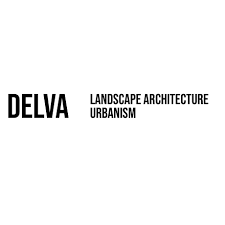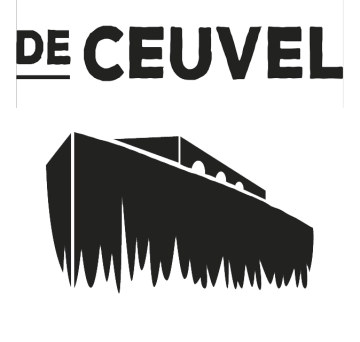
Cleaning and Regreening – transforming a polluted industrial plot into a circular green hotspot
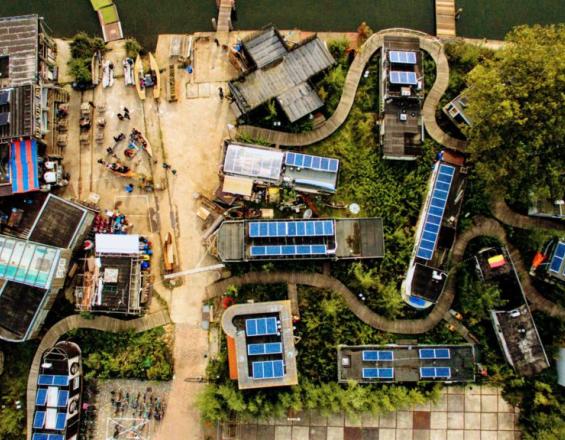
In 2012, a group of architects decided to transform a polluted and deserted shipyard in the North of Amsterdam into a creative co-working space called `De Ceuvel`. To restore the polluted soil of De Ceuvel, phytoremediation methods were implemented. The full area is cultivated with plants that absorb or stabilize soil pollution. Through community-driven development, the site opted for a sustainable building approach by investing in a solar-powered heating and airconditioning system and compost toilets. The system at De Ceuvel is fully circular, wastewater is purified through bio-filters, and nutrients are re-used for the production of food. Old houseboats were given a second life to provide 17 sustainable ateliers for entrepreneurs and artists. A wooden deck connects the ateliers to protect the restorative ecosystem, and limit the contact of visitors with the polluted soil. After 10 years of use, the site will be returned to the Amsterdam municipality, cleaner and richer than ever before.
Context
Challenges addressed
Location
Impacts
De Ceuvel is a great example for cities dealing with limited space for sustainable development. Municipalities are often restricted by the financial or environmental cost of restoring polluted areas. With the implementation of phytoremediation, this project demonstrated that alternatives are available to replace costly and often unsustainable soil-purification methods (usually hiding or replacing the polluted soil).
The project has shown real potential for reducing the use of resources and building materials, waste, and emissions. De Ceuvel currently uses 75% less water compared to similar offices. Additionally, an estimation of 600 tonnes of construction material was conserved and over 200.000 tonnes of CO2 emissions will be saved during the build and 10-year use of the site.
The site has shown that community-driven urban development has the potential to transform seemingly 'useless' plots of land through creativity and innovation. De Ceuvel is visited by local residents, tourists and people interested in learning about the circular system, providing them with a green communal space. It provides a testing ground for clean technologies in former industrial areas and has set an example on how cities can transform from large-scale waste producers into sustainable circular hubs that improve their natural environment rather than harm it.

